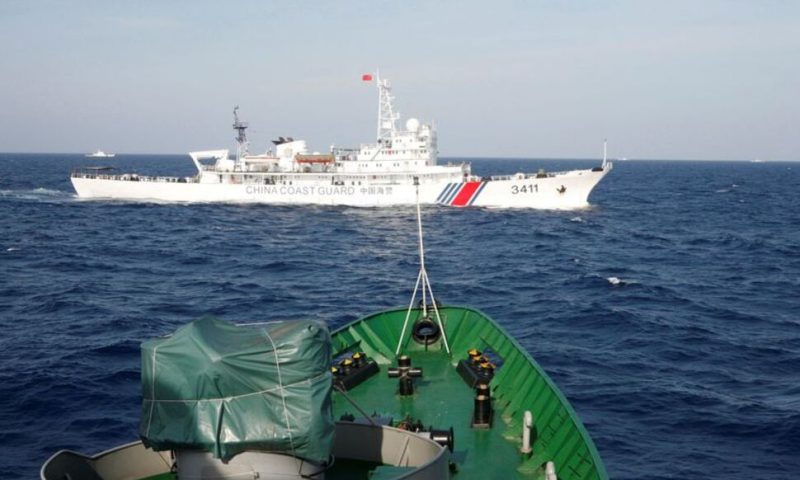WASHINGTON (Reuters) – Vietnam has conducted a major expansion of dredging and landfill work at several of its South China Sea outposts in the second half of this year, signaling an intent to significantly fortify its claims in the disputed waterway, a U.S. think tank reported on Wednesday.
Washington’s Center for Strategic and International Studies (CSIS) said the work in the Spratly Islands, which are also claimed by China and others, had created roughly 420 acres (170 hectares) of new land and brought the total area Vietnam had reclaimed in the past decade to 540 acres (220 hectares).
Basing its findings on commercial satellite imagery, CSIS’s Asia Maritime Transparency Initiative (AMTI) said the effort included expanded landfill work at four features and new dredging at five others.
“The scale of the landfill work, while still falling far short of the more than 3,200 acres of land created by China from 2013 to 2016, is significantly larger than previous efforts from Vietnam and represents a major move toward reinforcing its position in the Spratlys,” the report said.
Vietnam’s Washington embassy did not immediately respond to a request for comment on the report.
AMTI said Vietnam’s midsized outposts at Namyit Island, Pearson Reef and Sand Cay were undergoing major expansions, with a dredged port capable of hosting larger vessels already taking shape at Namyit and Pearson.
Namyit Island, at 117 acres (47 hectares) and Pearson Reef, at 119 acres (48 hectares), were both now larger than Spratly Island at 97 acres (39 hectares), which had been Vietnam’s largest outpost. Tennent Reef, which previously only hosted two small pillbox structures, now had 64 acres (26 hectares)of artificial land, the report said.
AMTI said Vietnam used clamshell dredgers to scoop up sections of shallow reef and deposit the sediment for landfill, a less destructive process than the cutter-suction dredging China had used to build its artificial islands.
“But Vietnam’s dredging and landfill activities in 2022 are substantial and signal an intent to significantly fortify its occupied features in the Spratlys,” the report said.
“(W)hat infrastructure the expanded outposts will host remains to be seen. Whether and to what degree China and other claimants react will bear watching,” it said.
China claims most of the South China Sea and has established military outposts on artificial islands it has built there. Taiwan, Vietnam, Malaysia, Brunei and the Philippines all have overlapping claims in the sea, which is crisscrossed by vital shipping lanes and contains gas fields and rich fishing grounds.

